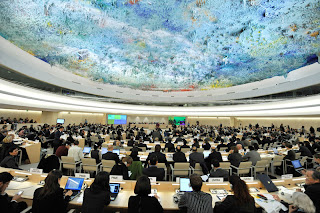"Whoever would overthrow the liberty of a nation must begin by subduing the freeness of speech." - Benjamin Franklin
The dominant reporting in Egypt goes something like this: Mohamed Morsi, Egypt's first democratically-elected President, and his Muslim Brotherhood are a threat to Egyptian national security. His removal from power by the military, while not unlike a coup, was legitimated by massive anti-government protests and widespread disapproval of Morsi's leadership, both of which threaten Egypt's social fabric. The Egyptian army, backed by popular support, stepped in to secure order and will act as midwife to the ugly, winding road to democracy. Democracy, democracy, democracy!
The dominant reporting in Egypt goes something like this: Mohamed Morsi, Egypt's first democratically-elected President, and his Muslim Brotherhood are a threat to Egyptian national security. His removal from power by the military, while not unlike a coup, was legitimated by massive anti-government protests and widespread disapproval of Morsi's leadership, both of which threaten Egypt's social fabric. The Egyptian army, backed by popular support, stepped in to secure order and will act as midwife to the ugly, winding road to democracy. Democracy, democracy, democracy!
While it's tempting to take any of these statements at face value, we're talking about a process with many competing interests and variables. Political plurality, free and fair elections, institutions and the rule of law all play a role in the democratic process. But in a country like Egypt with a dark history of martial--not rule of--law, government co-option of political parties, and a strangled press, these pillars of governance increasingly rely on independent assessment to test their efficacy. This role is traditionally shared by rights groups, professional syndicates and especially the media who act as watchdogs to and stakeholders in the political process. During this time of political transition and constitutional referendum in Egypt, neutral analysis of government action is central to the country's democratic potential. However, the current treatment of reporters, and harassment of domestic and foreign media outlets in Egypt (along with exclusion from the political arena and state-run media) throws doubt on the legitimacy of its democratic process.
